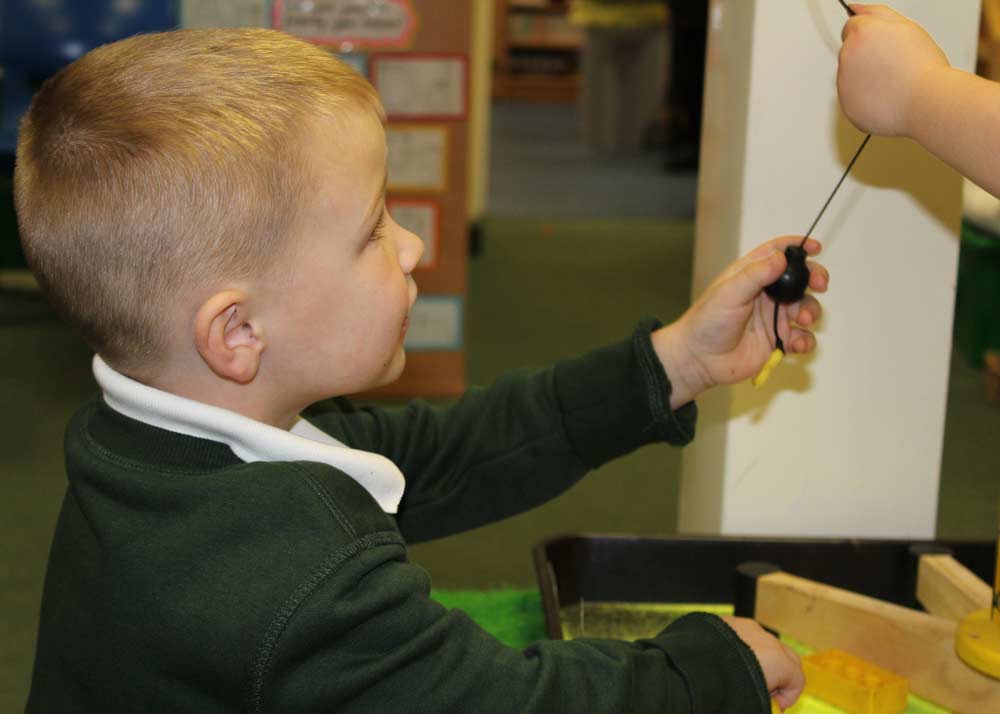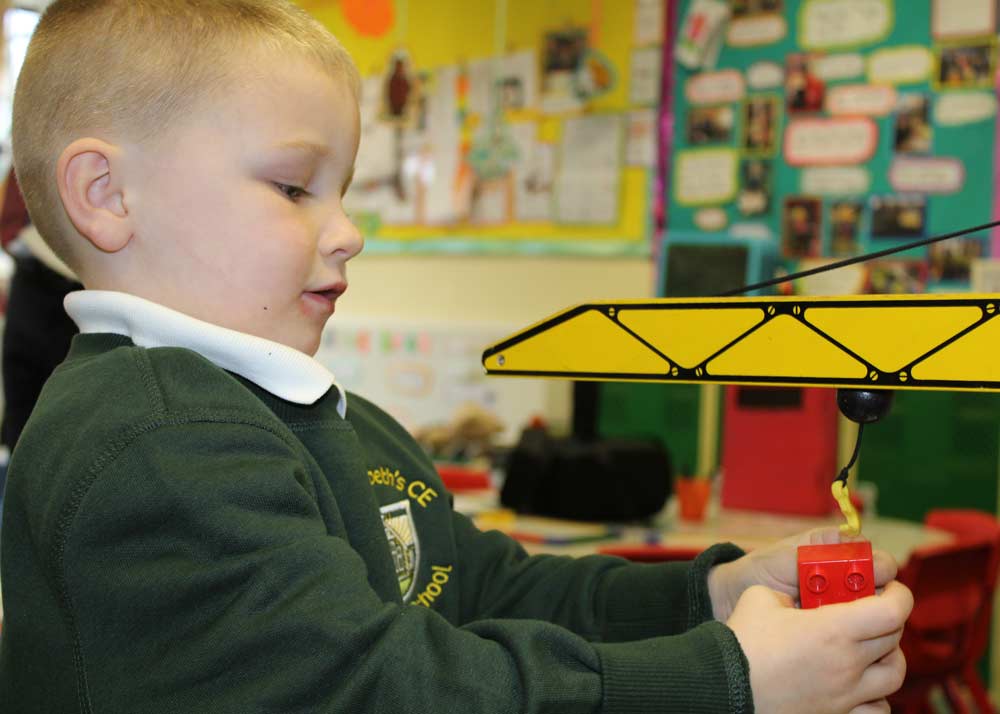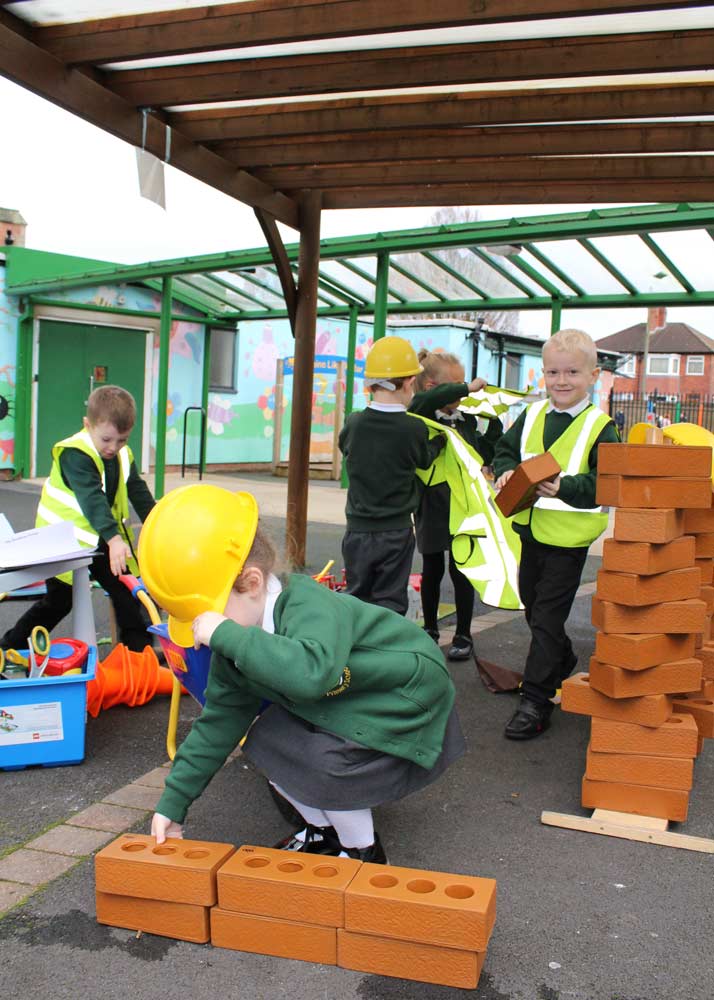Science


We intend to provide a high-quality science education which establishes the foundations for understanding the world through the specific disciplines of biology, chemistry and physics. Science has changed our lives and is vital to the world’s future prosperity, and all pupils are taught essential aspects of the knowledge, methods, processes and uses of science.
Through building up a body of key foundational knowledge and concepts, pupils should be encouraged to recognise the power of rational explanation and develop a sense of excitement and curiosity about natural phenomena. They should be encouraged to understand how science can be used to explain what is occurring, predict how things will behave, and analyse causes.
Our curriculum is designed to develop knowledge and skills that are progressive, enabling children to deepen their understanding of both the world and the ways in which things work.
‘Working scientifically’ specifies the understanding of the nature, processes and methods of science for each year group. It should not be taught as a separate strand and therefore ‘working scientifically’ is embedded within the content of biology, chemistry and physics, focusing on the key features of scientific enquiry, so that pupils learn to use a variety of approaches to answer relevant scientific questions.
These types of scientific enquiry include: observing over time; pattern seeking; identifying, classifying and grouping; comparative and fair testing (controlled investigations); and using research from secondary sources. Pupils should seek answers to questions through collecting, analysing and presenting data.
 Beginning in the Early Years, children use their senses to explore and investigate the world around them to develop their knowledge and skills, using cause and effect. The EYFS curriculum is designed to develop the characteristics of effective learning. Children are encouraged to create and think critically. They have and develop their own ideas, make links between ideas and develop strategies for doing things. Children are encouraged to be active learners. They keep on trying if they encounter difficulties, and enjoy their achievements. Finally, children are encouraged to play and explore. They investigate and experience things, and ‘have a go’.
Beginning in the Early Years, children use their senses to explore and investigate the world around them to develop their knowledge and skills, using cause and effect. The EYFS curriculum is designed to develop the characteristics of effective learning. Children are encouraged to create and think critically. They have and develop their own ideas, make links between ideas and develop strategies for doing things. Children are encouraged to be active learners. They keep on trying if they encounter difficulties, and enjoy their achievements. Finally, children are encouraged to play and explore. They investigate and experience things, and ‘have a go’.
The principal focus of science teaching in Key Stage 1 is to enable pupils to experience and observe phenomena, looking more closely at the natural and humanly-constructed world around them. They should be encouraged to be curious and ask questions about what they notice. They should be helped to develop their understanding of scientific ideas by using different types of scientific enquiry to answer their own questions, including observing changes over a period of time, noticing patterns, grouping and classifying things, carrying out simple comparative tests, and finding things out using secondary sources of information. They should begin to use simple scientific language to talk about what they have found out and communicate their ideas to a range of audiences in a variety of ways. Most of the learning about science should be done through the use of first-hand practical experiences, but our curriculum ensures use of appropriate secondary sources, such as books, photographs and videos.
The Lower Key Stage 2 science curriculum should enable pupils to broaden their scientific view of the world around them. Our curriculum enables this through exploring, talking about, testing and developing ideas about everyday phenomena and the relationships between living things and familiar environments, and by beginning to develop their ideas about functions, relationships and interactions. They should ask their own questions about what they observe and make some decisions about which types of scientific enquiry are likely to be the best ways of answering them, including observing changes over time, noticing patterns, grouping and classifying things, carrying out simple comparative and fair tests and finding things out using secondary sources of information. They should draw simple conclusions and use some scientific language, first, to talk about and, later, to write about what they have found out.
In Upper Key Stage Two, the principal focus of our science teaching is to enable pupils to develop a deeper understanding of a wide range of scientific ideas. Our curriculum enables this through exploring and talking about their ideas; asking their own questions about scientific phenomena; and analysing functions, relationships and interactions more systematically. At upper key stage 2, they should encounter more abstract ideas and begin to recognise how these ideas help them to understand and predict how the world operates. Our curriculum supports pupils’ ability to recognise that scientific ideas change and develop over time. They should select the most appropriate ways to answer science questions using different types of scientific enquiry, including observing changes over different periods of time, noticing patterns, grouping and classifying things, carrying out comparative and fair tests and finding things out using a wide range of secondary sources of information. Pupils should draw conclusions based on their data and observations, use evidence to justify their ideas, and use their scientific knowledge to explain their findings.
In all Key Stages, there is an emphasis for children to observe changes in all aspects of nature overtime.
The national curriculum for science reflects the importance of spoken language in pupils’ development across the whole curriculum – cognitively, socially and linguistically. The quality and variety of language that pupils hear and speak are key factors in developing their scientific vocabulary and articulating scientific concepts clearly and precisely. They must be assisted in making their thinking clear, both to themselves and others, and teachers should ensure that pupils build secure foundations by using discussion to probe and remedy their misconceptions. Our curriculum ensures that key vocabulary is at the forefront of lessons.
We are committed to implementing our vision by providing exciting, hands on and practical experiences for all children in the school. In turn this will help promote independent learning, curiosity and a love for enquiry and knowledge. Throughout the science curriculum, children will cover topics to develop a greater understanding within Physics, Chemistry and Biology, building upon this as they progress through the school. All of this is underpinned through working scientifically and developing practical enquiry and investigation skills. This is implemented by science lessons across the whole school, which are planned to be exciting, practical and engaging for all children. In every science lesson, children will build upon their existing scientific knowledge and skills, whilst creating links to the world around them and exploring ‘real life’ situations. They are challenged to question and explain their understanding to others using scientific vocabulary.
It is the school’s intent that the implementation of high-quality science teaching will have a positive impact on attainment levels, but also result in children who are curious about the world in which we live. The impact of science teaching is regularly monitored and updated with resources to help reach the high levels of which we strive to achieve. Through offering a practical, engaging and vocabulary rich science curriculum, the impact will be in children who are confident, lifelong learners who continue to explore the world around them long after they leave St Elisabeth’s CE Primary School.

